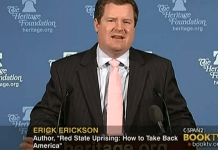Tatiana Maslany, celebrated star of the She-Hulk series, vehemently criticized a newly enacted parental rights law in the Canadian province of Saskatchewan. The law, effective since October, mandates that school staff must obtain parental consent before using a student’s preferred name or gender identity. Maslany, speaking at an event in Toronto, described the legislation as “absurd” and an “overreach” by the provincial government.
It should not be in the control of the parents how a child identifies; how a child knows themself to be, Maslany asserted, her voice charged with conviction. She emphasized that determining one’s identity is a personal journey for children, not a decision to be legislated. That isn’t a parent’s place it’s an overreach, she insisted, underscoring her belief in the autonomy of young individuals to express their identities freely.
The controversy surrounding the law reflects broader societal debates over LGBTQ+ rights and parental authority. Supporters argue that parental involvement is crucial for children navigating their gender identities, while critics like Maslany stress the importance of respecting children’s self-perception without unnecessary constraints. This clash has sparked intense public discourse, highlighting deep-seated divisions over how best to protect and support LGBTQ+ youth.
Maslany’s outspoken stance is consistent with her history of advocating for social justice causes. At the Canadian Walk of Fame event where she made these remarks, Maslany used her platform to draw attention to issues beyond entertainment, echoing her previous calls for justice in the Gaza conflict. Her actions underscore a trend where public figures increasingly leverage their fame to address pressing social issues, challenging norms and sparking dialogue.
The debate over using preferred names and pronouns without parental consent is not confined to Canada; it has also roiled communities in the United States and beyond. In some regions, school policies vary widely, with some districts adopting inclusive practices while others enforce stricter regulations. These disparities reflect broader societal shifts in attitudes toward gender identity and LGBTQ+ rights, with consequential implications for educational institutions and families alike.
The crux of the issue lies in balancing parental rights with the rights of children to self-determination. Advocates for parental consent argue that parents play a crucial role in their children’s lives and should be consulted on significant matters. On the other hand, proponents of individual autonomy stress that children deserve agency in defining their own identities, free from undue interference.
Maslany’s remarks underscore a critical tension between personal freedoms and state intervention in matters of identity. By labeling the law as an “overreach,” she challenges the assumption that parental authority should supersede a child’s right to self-identify. Her stance resonates with those who view the law as regressive, potentially undermining efforts to foster inclusivity and acceptance in educational settings.
The controversy also intersects with broader debates about transgender rights, particularly concerning medical treatments for minors. Critics of the transgender movement have raised concerns about the appropriateness of medical interventions such as surgeries and hormone treatments for young people. These concerns reflect anxieties about the long-term consequences of such decisions on individuals’ physical and psychological well-being.
Maslany’s advocacy aligns with a growing chorus of voices calling for greater sensitivity and understanding toward LGBTQ+ individuals, particularly youth navigating complex issues of identity. Her critique of the Saskatchewan law underscores the importance of listening to and respecting the perspectives of young people themselves, whose experiences and insights should inform policies affecting their lives.
Tatiana Maslany’s outspoken criticism of Saskatchewan’s parental rights law reflects broader societal tensions over LGBTQ+ rights, parental authority, and individual autonomy. By challenging what she perceives as governmental overreach, Maslany advocates for a more inclusive approach that prioritizes children’s rights to self-identify. Her advocacy highlights the evolving landscape of LGBTQ+ rights advocacy, where public figures like herself play a pivotal role in shaping public opinion and policy discourse. As debates continue to unfold, Maslany’s voice serves as a powerful reminder of the ongoing struggle for equality and recognition for all individuals, regardless of gender identity or expression.























